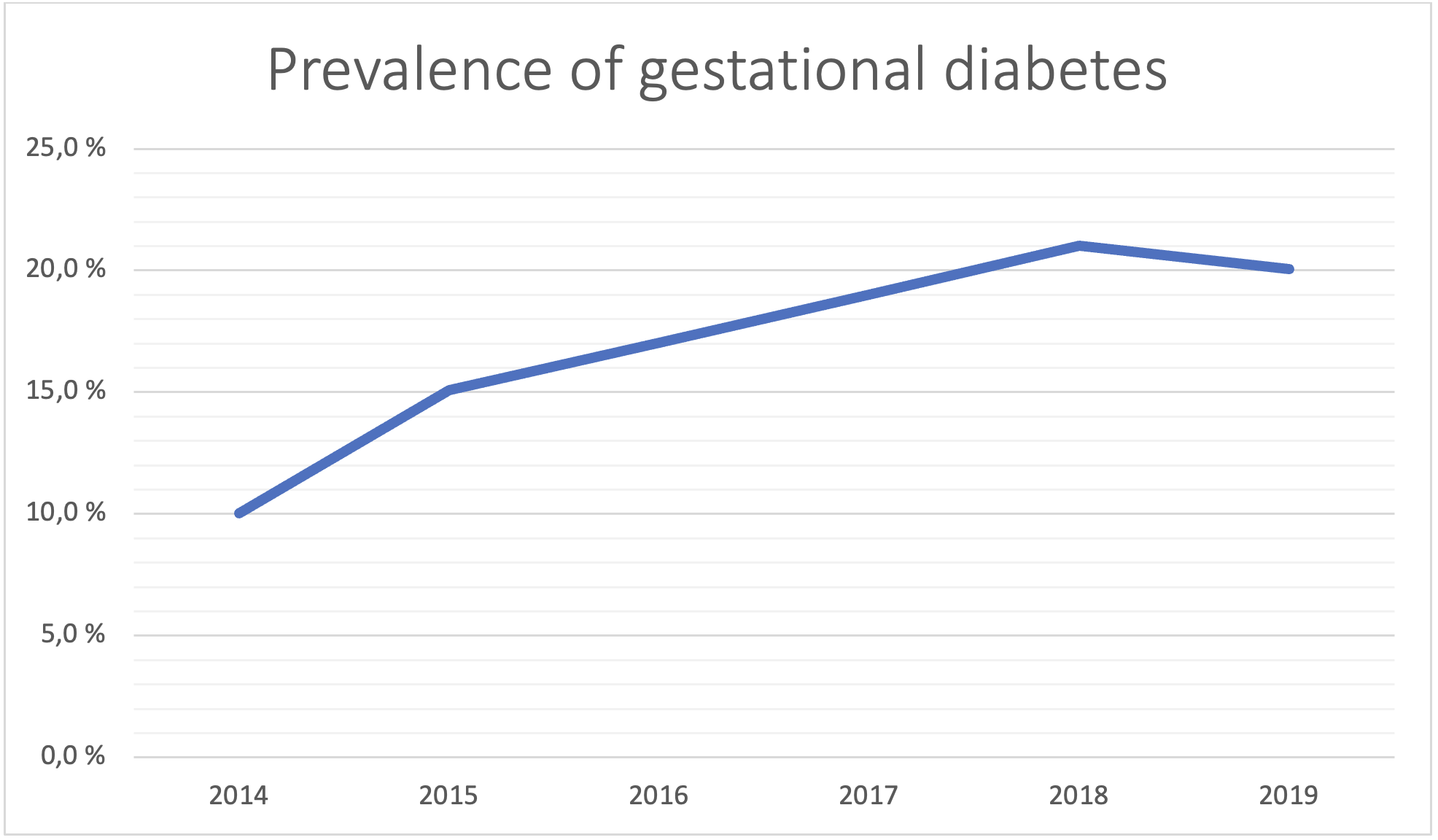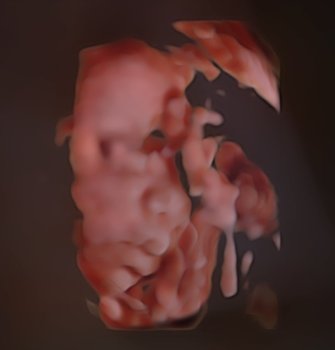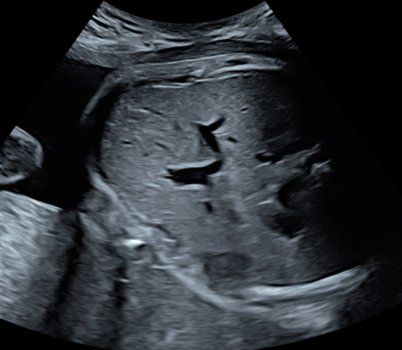Could ultrasound provide a new tool for the study of foetal insulin metabolism?
The elevated blood sugar level of the expecting mother affects her foetus in many ways including, for example, liver size, blood circulation, fat concentration and metabolism. Researchers are now exploring if ultrasound imaging could provide an efficient method for the monitoring of foetal metabolism and facilitate a more individualised treatment of diabetes during pregnancy.Published: 6.3.2025
Text: Mikael Huhtala
Picture: iStock
Editing: Viestintätoimisto Jokiranta Oy
In Finland, over 20 per cent of pregnant women develop gestational diabetes during pregnancy, in which blood sugar (glucose) rises higher than normal When the expecting mother’s blood sugar level rises, part of the glucose passes through the placenta to the circulation of the foetus, resulting in a higher blood sugar level in the foetus as well. Already in the early weeks of pregnancy, the foetus responds to this by increasing its insulin secretion. Insulin also serves also as a powerful growth hormone, which promotes the growth and fat tissue formation of the foetus. Increased insulin secretion means an increased risk for the newborn baby to develop low blood sugar levels and may slow down the maturation of lungs.

Figure 1: Prevalence of gestational diabetes in Finland in 2014–2019. Source: The Finnish Institute for Health and Welfare (THL), http://urn.fi/URN:NBN:fi-fe2020112092125
Gestational diabetes affects the foetus in many ways
Diabetes that occurs in pregnancy is often symptomless and usually diagnosed by means of a glucose tolerance test. It can be classified into cases that can be controlled by changes in diet (White A) and cases that require medication (White A/B). In reality, however, the disease spectrum is much more diverse, and the risk of accelerated foetal growth and neonatal complications varies individually. The mother’s blood sugar level or the estimation of foetal weight based on ultrasound imaging offer only rough indicators of the foetal metabolism.
Earlier research has shown that high maternal blood glucose levels affect the liver size, blood circulation, fat concentration and metabolism in the foetus. These effects are assumed to be mostly transmitted through foetal insulin. There are no previous studies concerning the possibility to assess the level of foetal insulin secretion on the basis of ultrasound images.
Radiomics to assist in the evaluation of foetal metabolism
Radiomics is an evolving field of research involving the computer-aided analysis of medical images. It uses algorithms to extract quantitative data from the images for the purpose of determining the texture and form of tissues, organs and other structures. The datasets are employed in statistical modelling as a means of, for example, detecting diseases or differentiating cancer tumours. Radiomics analysis can be applied to images obtained through different methods, such as X-ray, magnetic resonance or ultrasound imaging.
Our research aims to study if it is possible to find indicators of foetal insulin secretion from the texture of foetal liver in ultrasound images. The method might provide a rapid and safe tool for the assessment of foetal metabolism and facilitate a more accurate treatment of gestational diabetes.


Figure 2: 3D Ultrasound image
Figure 3: The liver of a foetus in an ultrasound image.
Towards more individual treatment
The initial phase of our research involves a comparison of foetal liver ultrasound images in late pregnancy in mothers with Type 1 diabetes vs. healthy controls. The imaging will take place at the Department of Obstetrics and Gynaecology at Turku University Hospital. The ultrasound images are saved for a computerised texture analysis by means of radiomics tools. By using statistical and machine learning models, we will evaluate the repeatability of the method and differences between the groups.
Ultrasound imaging is a safe and widely used method in the monitoring of pregnancy. Because the maternity clinics within specialised healthcare already have ultrasound devices available, new ultrasonic methods could be launched in a swift and cost-effective manner. Our research aims to introduce a new and individualised approach to the monitoring and treatment of gestational diabetes.

Mikael Huhtala, MD, PhD, is working as a Specialist in Obstetrics and Gynaecology at Turku University Hospital (TYKS). He is engaged in several research projects concerning gestational diabetes and treatment during pregnancy. His doctoral dissertation (2021) concerned the impacts of medication for gestational diabetes on maternal and foetal metabolism.
